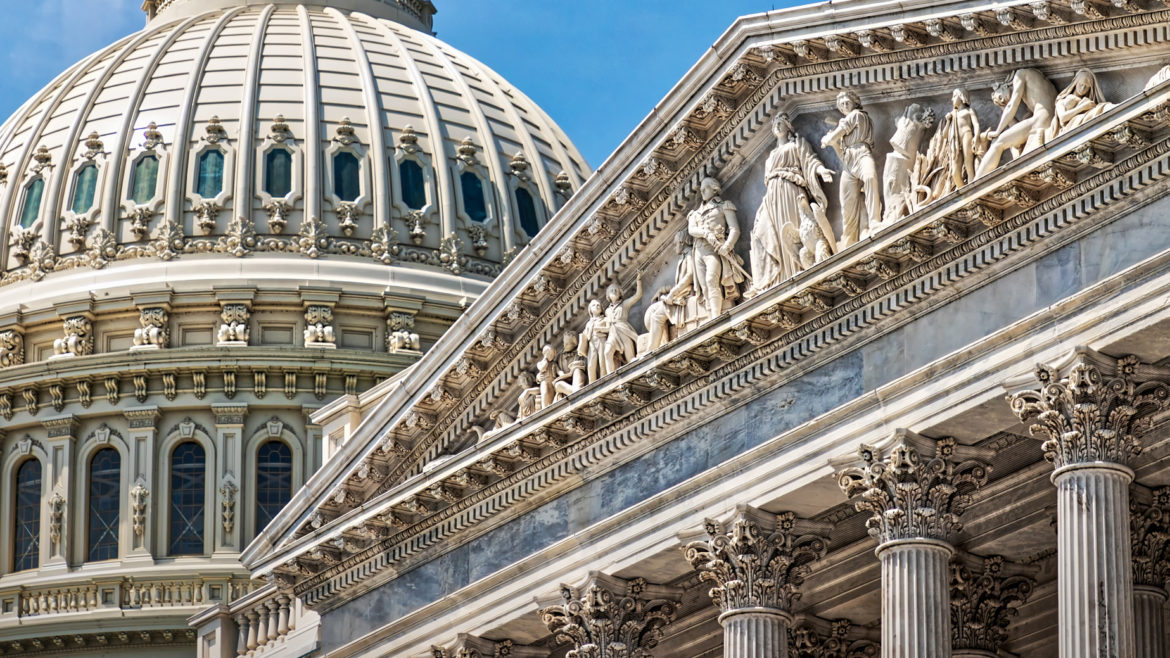Now that the Supreme Court has found the Consumer Financial Protection Bureau’s funding mechanism constitutional, Director Rohit Chopra is revving up the agency’s engines.
“Yesterday, the Supreme Court rejected a radical theory that would have rattled financial markets by injecting uncertainty into all of the CFPB’s actions taken since day one,” Chopra said, following the Supreme Court decision on May 16. “Whether it’s appraisals or auto loans or mortgages or medical loans, the CFPB will be firing on all cylinders,”
The Community Financial Services Association of America, the trade group representing payday lenders, had challenged the bureau’s payday lending rule, contending that the agency’s funding mechanism was unconstitutional because the bureau did not receive annual appropriations. The Supreme Court disagreed. “The Court’s ruling makes clear the CFPB is here to stay,” Chopra declared.
Chopra emphasized that the agency would continue—and even speed up—its supervisory and enforcement efforts. However, he may be racing against the clock. It is an election year and the director of the CFPB serves at the pleasure of the president. A change in administrations could result in big changes at the CFPB.
When the CFPB was created as part of the Dodd-Frank Act, Congress attempted to insulate the agency from political pressure by funding it outside the annual appropriations process. Congress also established a five-year term for the CFPB director and said that the director could only be removed for “inefficiency, neglect of duty, or malfeasance in office.” In a separate 2020 lawsuit, the Supreme Court ruled that the constitutional principle of separation of powers meant that the director needed to be removable by the president for any reason, including political differences. So now the CFPB is more responsive to the executive branch than Democratic creators of the agency intended.
If Biden is reelected, the agency’s activist approach would likely continue. But if Donald Trump returns to the White House, the CFPB undoubtedly would have a new director. If the first Trump Administration is any indication, that new director would slow enforcement and supervisory efforts and roll back rules.
So, time is of the essence to Chopra, and he made that clear last week. “Here’s what will happen next,” he said, following the Supreme Court decision. Noting that several of the CFPB’s enforcement actions were delayed in the courts pending the Supreme Court ruling, Chopra said the agency will move ahead with its law enforcement work.
“In many of these lawsuits, we allege that the defendants engaged in severe misconduct that took advantage of people, including ones living paycheck to paycheck and even military families,” he said. “That means justice has been delayed for too many.” The CFPB will focus on repeat offenders, he said, adding that the agency will hire additional people for its enforcement office.
The CFPB’s final credit card late fee rule is currently tied up in federal court. That rule would cut most credit card late fees to $8. Judge Mark Pittman of the U.S. District Court for the Northern District of Texas issued an injunction blocking the rule until the Supreme Court issued its decision on the CFPB’s funding mechanism. Pittman made it clear that he was not judging the merits of the rule in issuing the injunction. With the Supreme Court case decided, it remains to be seen whether the agency will be allowed to move forward with the rule, which had been scheduled to go into effect on May 14.
Federal judges also have placed the CFPB’s small business reporting rule on hold pending the Supreme Court decision. That rule would require large financial institutions to report to federal officials their lending activity to women-owned and minority-owned businesses. The CFPB already has extended the compliance dates for that rule. For instance, the CFPB said that financial institutions that originated between 100 and 500 loans to women- and minority-owned businesses in 2022 and 2023 would be required to report that activity on June 1, 2027.
The Supreme Court decision on CFPB funding has removed the major reason that cases about CFPB rules have been on hold with injunctions against the rules in the courts. The big question now is how fast the courts will make decisions about the implementation of the rule. Chopra does not have control over the court calendars, but there is plenty that the CFPB does have control over to continue its supervisory and enforcement efforts.
The agency clearly will continue its campaign against so-called “junk fees.” Removing fees designated as “junk fees” is a priority across the Biden Administration. As a result of those efforts at the CFPB, “We’ve seen large financial firms reduce billions of dollars in junk fees, and we’ve taken action to recover illegally obtained junk fees,” Chopra said.
Since the Supreme Court ruling, the CFPB has acted on several additional fronts.
On May 22, the agency issued an interpretive rule confirming that “buy now, pay later” lenders are credit card providers. If adopted, the rule would provide buy now, pay later consumers with the same legal protections that apply to credit cards. Those protections include the right to dispute charges and demand a refund from the lender after returning a product purchased with a buy now, pay later plan. The rule would require lenders to investigate disputes, refund returned products or cancelled services and provide periodic billing statements. The rule will radically change the buy now, pay later industry.
“When consumers check out and choose buy now, pay later, they don’t know if they will get a refund if they return their product or whether the lender will help them if they didn’t get what was promised,” Chopra, said, in announcing the rule. “Regardless of whether a shopper swipes a credit card or uses buy now, pay later, they are entitled to important consumer protections under longstanding laws and regulations already on the books.”
The CFPB also has begun moving against individual companies.
On May 17, CFPB officials sued online lending platform SoLo Funds, alleging that the company deceived borrowers about the cost of their loans. “Despite advertising zero-interest loans or 0% APR loans, SoLo’s use of dark patterns ensures that almost every borrower pays a fee, in the form of a ‘tip’ or ‘donation,’” the CFPB said, in announcing the lawsuit. “The CFPB is seeking, among other things, injunctions against SoLo to prevent future violations, monetary relief for borrowers, forfeiture of ill-gotten gains, and a civil money penalty.”
On May 20, the bureau also ordered Western Benefits Group to permanently cease operations and pay a $400,000 penalty to be deposited into the agency’s victim’s relief fund. The order also nullifies all existing agreements with consumers.
Western Benefits Group charged fees for its service and said the fees would be used to help borrowers pay down their debt. They were not used in that manner, according to the CFPB. The CFPB said the company also claimed to be affiliated with the Department of Education, which it is not.
“Western Benefits claimed it would help consumers consolidate their student loans, would help lower monthly loan payments, and would help consumers achieve loan forgiveness,” the CFPB said, in announcing the action. “In many instances, the company did not fulfill any of these claims.”
“The burden of student debt has spawned scores of scams,” Chopra said. “Student loan borrowers should steer clear of outfits claiming to be affiliated with the Department of Education.”
The CFPB’s activist agenda has credit union trade groups worried. “Unfortunately, overregulation and attacks on products that provide necessary income to financial institutions, such as mis-characterizing avoidable and clearly disclosed fees as ‘junk fees,’ are making it harder for credit unions to survive,” Carrie Hunt, America’s Credit Unions chief advocacy officer wrote in letters to the CFPB and the National Credit Union Administration last week.
Hunt warned that the cost of financial services will increase due to revenue lost from further regulation of non-interest income. She explained that in a recent survey of credit unions by the trade group, 85% of the institutions reported they would be forced to increase loan interest rates to offset a loss of non-interest income, 65% of the institutions said they would increase credit card rates and 71% said they would decrease share and savings rates.
In the past, credit union trade groups have appealed to members of Congress to change the CFPB structure. While key Republicans have said such action is needed in light of the Supreme Court ruling, it is unlikely to succeed during the current Congress.
House Financial Services Committee Chairman Rep. Patrick McHenry, R-N.C., said the Supreme Court ruling on CFPB funding reenforces the need for the House to consider H.R. 2798, legislation that was introduced by Rep. Andy Barr, R-Ky., chairman of the Financial Services Committee’s Financial Institutions and Monetary Policy Subcommittee. That legislation would convert the CFPB, which is run by a single director, into a five-member commission and make it subject to the appropriations process.
“This commonsense legislation will fix the mistakes of Dodd-Frank which set the dangerous precedent of tapping the central bank to fund partisan political objectives,” McHenry said. “It’s past time the CFPB is held accountable to the American people through their elected representatives.”
That’s been tried in the past. House Republicans attempted to attach that proposal to the FY24 Financial Services appropriations measure. However, the House-Senate agreement on FY24 appropriations dropped it. That is common, since the Senate often rejects controversial policy riders in appropriations measures.
Republicans are unlikely to have much more success when it comes to a standalone bill. H.R. 2798 has no chance of passing the Democratic-controlled Senate, where Banking Committee Chairman Sen. Sherrod Brown, D-Ohio, is a staunch supporter of the CFPB.
“Today’s decision protects workers and consumers who don’t have high-paid lobbyists and lawyers to fight their battles for them,” Brown said, discussing the court’s decision. “We created the CFPB to be their voice, and I will continue to ensure the agency is able to do its job protecting consumers from Wall Street greed.”
The bottom line: expect more supervisory and enforcement actions from the CFPB during 2024.






















































